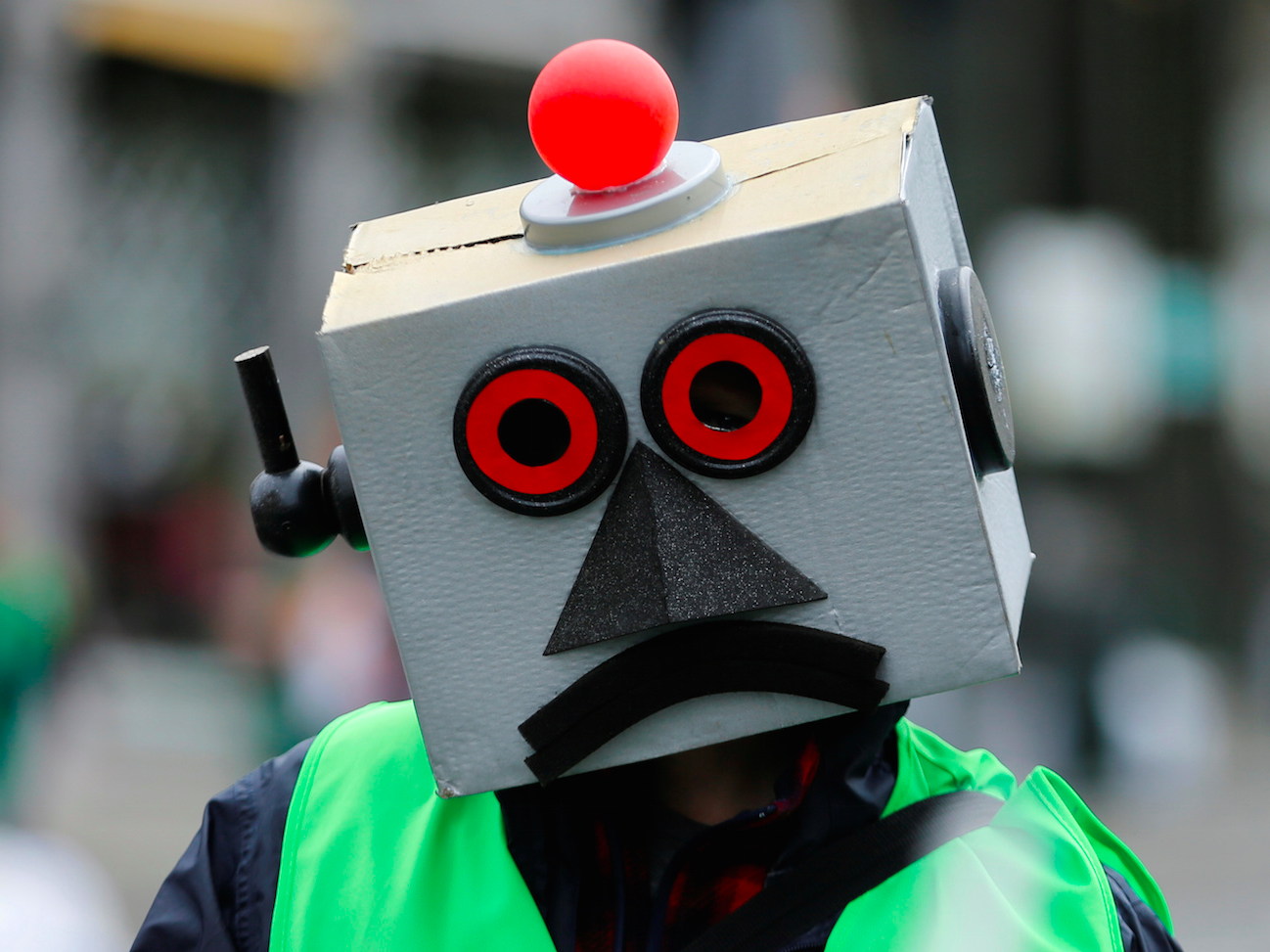A report has found that sex robots and life-like sex dolls are becoming increasingly advanced and that they’re far more prolific in society than people realise.
Co-author Noel Sharkey, a professor of artificial intelligence (AI) and robotics at the University of Sheffield, warned that there are a number of ethical implications that sex robots present when he unveiled the “Our Sexual Future with Robots” report to journalists on Tuesday.
“We found that there were a bunch of companies making these and beginning to ship orders and we thought that we should really look at it,” said Sharkey, adding that sex robots and dolls are being proposed for a range of potentially questionable uses.
Some of the sex robots on the market look incredibly human-like, Sharkey said in London. They’re able to perform an increasing number of sexual acts including fellatio and male sex robots can “thrust” with a fake penis.
One highly controversial area that people are proposing sex robots are used for is to prevent sex crimes such as rape.
"The idea is robots would resist your sexual advances so that you could rape them," said Sharkey, who launched the Foundation for Responsible Robotics 18 months ago. "Some people say it's better they rape robots than rape real people. There are other people saying this would just encourage rapists more."
There is already a sex robot in development called "Roxxxy" that has a "frigid" setting that allows it to resist a human's sexual advances.
More concerning, perhaps, are child sex robots and sex dolls. "These are already being made and shipped from Japan by a self-confessed peadophile who says he's never had sex with a child because he made this doll for that reason."
That self-confessed paedophile is Shin Takagi, who set up a company called Trottla that manufactures and markets child look-alike sex dolls. Takagi told The Atlantic last year: "We should accept that there is no way to change someone's fetishes. I am helping people express their desires, legally and ethically. It's not worth living if you have to live with repressed desire."
But few believe that child sex robots and child sex dolls could help in therapeutic prevention to stop paedophiles offending or reoffending, the report reads.
"People say maybe you can use these for therapy," said Sharkey. "Again, I can't see it myself. I think it would encourage peadophilia and make it more acceptable to assault children."
Patrick Lin, author of "Robot Ethics: The Ethical and Social Implications of Robotics," is cited in the report saying : "Treating peadophiles with robot sex-children is both a dubious and repulsive idea. Imagine treating racism by letting a bigot abuse a brown robot. Would that work? Probably not."
Sex robots are also being proposed for use in elderly care homes. "Of course the elderly do want to have sex," Sharkey argues: "But it's kind of against their dignity, especially if you've got severe Alzheimer's and you can't really tell the difference in what you're doing. It's a difficult one."
Elsewhere, sex robots are also being proposed for disabled people and for people who have social anxiety about having sex. "There's a basic human right that everybody's entitled to a sexual life, including people with disabilities," said Sharkey.
It's also possible that couples in a long distance relationship could have a silicon replica of one another, Sharkey said.
A survey published by innovation agency Nesta last June found that a quarter of young people would happily date a robot. But Sharkey highlighted that robots have a number of limitations in relationships.
"If they do then it's going to be very sad because it'll be a one way relationship. Robots don't have any kind of emotion themselves. People bond with robots but it's very one way. You're loving an artefact that can't love you back and that's what's sad about it."
He added: "The best they can do is 'fake it'. They can have an orgasm or whatever and pretend to like you but they're not going to be that good at it."

